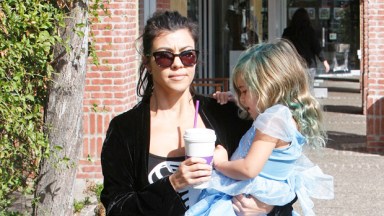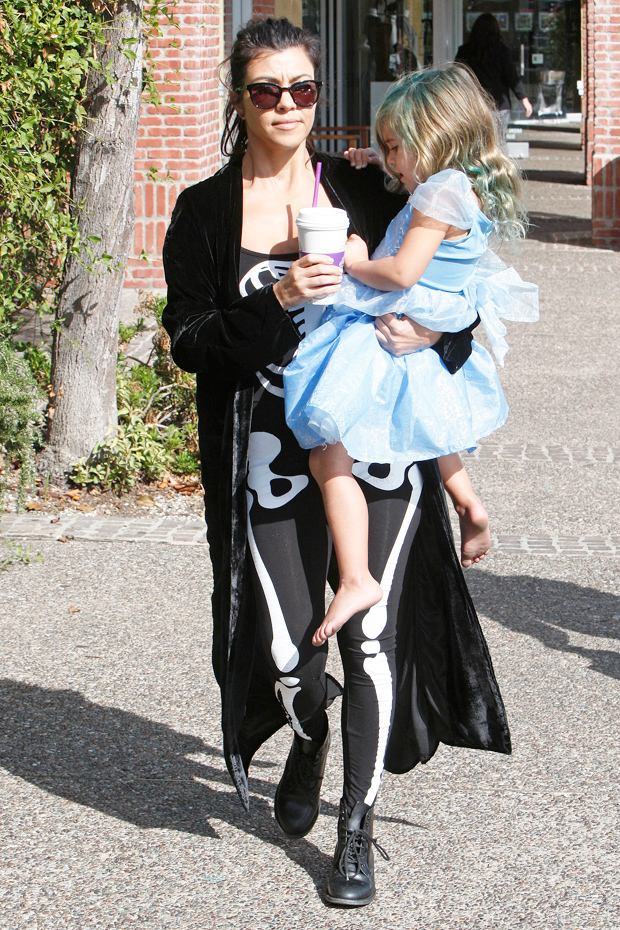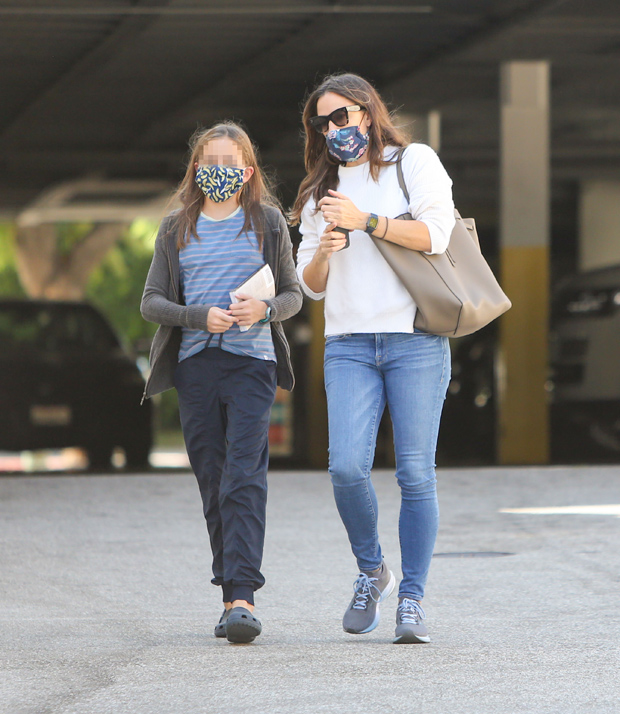
With Halloween just weeks away, adults and kids alike have begun getting into the holiday spirit! If you plan on taking your kids trick-or-treating this Halloween, check out these helpful tips before picking out your favorite Halloween costume to ensure you and your kids are safe amid the coronavirus pandemic. HollywoodLife spoke EXCLUSIVELY with Dr. Michael G. Knight – an Assistant Professor of Medicine at George Washington University – who shared why Halloween masks do not prevent the spread of COVID-19, and what classifies as a real safety mask.
“Halloween masks don’t have a filter. They have an opening for you to breathe through, so that is not going to classify as a mask for safety,” Dr. Knight explained. “A mask that has at least two layers of fabric or cloth is going to classify as a mask for safety.”

However, Dr. Knight clarified that a cloth mask should NOT be worn underneath a Halloween mask. “Wearing a cloth mask under a Halloween mask that covers the nose and mouth is not recommended due to limited air flow. This would be especially important for children with lung conditions such as asthma,” he said, while suggesting some alternatives. “Wear a Halloween mask that only covers the eyes along with a cloth mask over the nose and mouth, or skip a [full-faced] Halloween mask and wear a Halloween-themed cloth mask.”

“Halloween is a big holiday for kids and adults alike. So we want to think about the safest way to celebrate because we’re still in the coronavirus pandemic,” Dr. Knight explained. “The highest risk for transmission of the virus is being in close contact with another person you don’t live with, and close contact is anything within six feet. You always want to think of that framework when planning activities and the more people there are in any given area, the higher the risk.”
When it comes to trick-or-treating in the community, Dr. Knight said there are still ways to participate safely. “It’s not that trick-or-treating in and of itself is terrible or high risk, but if you’re trick-or-treating in large groups, and interacting with neighbors face-to-face without wearing proper safety face masks then that is a high-risk,” he said. “Instead, think about ways to provide candy for the kids at home so they don’t have to go out at all, or limit the interaction with other people by trick-or-treating in very small groups.”
“Also, if you are living in a city where COVID-19 is still prevalent, then I would not recommend trick-or-treating at homes with your kids unless neighbors have candy set outside at a safe distance,” he said. “The [Centers for Disease Control and Prevention (CDC)] recommendations are that neighbors prepare individually packaged candy bags. So you and your neighbors want to do Ziploc bags or some type of little plastic bags that are tied or individually wrapped. Set them outside for the kids to pick up while neighbors can be all the way inside the house or at the door waving from a distance. You will be at a safe distance with your kids, and can come up to the house or at the end of the driveway, grab a bag and be on your way.”
![Margot Robbie and Ryan Gosling seen doing scenes on set of Barbie. 28 Jun 2022 Pictured: Margot Robbie and Ryan Gosling. Photo credit: APEX / MEGA TheMegaAgency.com +1 888 505 6342 (Mega Agency TagID: MEGA873135_001.jpg) [Photo via Mega Agency]](https://hollywoodlife.com/wp-content/uploads/2021/10/celebrity-halloween-costumes-12.jpg?fit=318%2C440)

